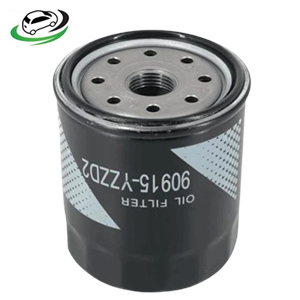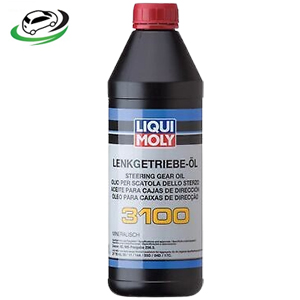Get Toyota Mark-X Oil Filter Assy 04152-38010 in Kenya
An Oil Filter Assembly is one of the most critical components in a vehicle’s engine. It plays a vital role in maintaining engine cleanliness by filtering out impurities, contaminants, and debris from the engine oil. This ensures smooth performance, prolongs engine life, and enhances fuel efficiency.
In this comprehensive guide, we’ll explore everything you need to know about oil filter assemblies, including their function, types, maintenance, and why they are essential for your vehicle’s health.
What is an Oil Filter Assembly? 🏎️🔧
The Oil Filter Assembly is part of the vehicle’s lubrication system, responsible for removing dirt, metal particles, and sludge from the engine oil. Clean oil is essential for reducing friction between moving parts, preventing wear and tear, and maintaining optimal engine performance.
Without a properly functioning oil filter, contaminants would circulate within the engine, leading to reduced efficiency and potential damage over time.
How Does an Oil Filter Work? 🛢️⚙️
As your engine runs, the oil circulates to lubricate key components. However, over time, engine oil collects dirt, metal shavings, and carbon deposits, which can degrade engine performance.
The oil filter works by:
-
Trapping Contaminants – As oil flows through the filter, a fine mesh or synthetic material catches impurities.
-
Allowing Clean Oil to Pass – After filtration, only clean oil is allowed to circulate back into the engine.
-
Preventing Oil Flow Blockage – Some filters have a bypass valve to ensure oil flow continues even if the filter gets clogged.
🔹 Key Benefits of an Oil Filter:
✔️ Removes harmful contaminants
✔️ Prolongs engine life 🏁
✔️ Improves fuel efficiency ⛽
✔️ Reduces engine wear and tear 🔩
✔️ Lowers maintenance costs 💰
Types of Oil Filters 🚘🔍
Oil filters come in various designs, each offering different levels of filtration efficiency and durability. Here are the most common types:
1. Mechanical Oil Filters 🔧🛠️
🔹 Contain a filtering element made of pleated paper, cotton, or felt
🔹 Capture large particles but may require frequent replacement
🔹 Common in standard vehicles
2. Cartridge Oil Filters 📦🔩
🔹 Consist of a replaceable filter element without a metal housing
🔹 Environmentally friendly since only the filter needs replacement
🔹 Used in many modern vehicles
3. Spin-On Oil Filters 🔄🛢️
🔹 Most common type found in cars and trucks
🔹 Includes a metal canister with a built-in filter element
🔹 Easy to replace with minimal tools
4. Magnetic Oil Filters 🧲🔧
🔹 Use a magnet to attract metal particles in the oil
🔹 Common in high-performance and heavy-duty engines
🔹 Can be used alongside traditional filters for added protection
5. High-Efficiency (HE) Oil Filters ⚙️🌟
🔹 Designed to filter out finer contaminants
🔹 Typically used in high-performance and luxury vehicles
🔹 Provide extended service intervals
Signs That Your Oil Filter Needs Replacement 🚨🔄
A clogged or old oil filter can cause several engine problems. Watch for these warning signs:
🔴 Low Oil Pressure Warning Light – A clogged filter restricts oil flow, reducing pressure.
🔴 Dirty or Dark Oil – If your oil appears thick and dirty, your filter might not be working efficiently.
🔴 Decreased Engine Performance – Sluggish acceleration and reduced efficiency can indicate a dirty filter.
🔴 Loud Engine Noises – A lack of proper lubrication can cause knocking or rattling sounds.
🔴 Excessive Exhaust Smoke – Contaminated oil can lead to increased emissions.
🚗 Tip: It’s recommended to replace your oil filter every 5,000 to 10,000 miles (8,000 to 16,000 km) or as per your vehicle manufacturer’s guidelines.
How to Replace an Oil Filter? 🔄🛠️
Changing an oil filter is a straightforward process that can be done at home or by a mechanic. Follow these steps:
Step 1: Gather Your Tools 🛠️
✔️ New oil filter
✔️ Fresh engine oil
✔️ Oil filter wrench
✔️ Drain pan
✔️ Gloves and rags
Step 2: Drain the Old Oil 🛢️
✔️ Locate the drain plug under the engine and place the drain pan underneath.
✔️ Unscrew the drain plug and let the old oil drain completely.
Step 3: Remove the Old Oil Filter 🔧
✔️ Use an oil filter wrench to loosen and remove the old filter.
✔️ Be cautious, as some oil may spill.
Step 4: Install the New Oil Filter 🆕
✔️ Apply a thin layer of fresh oil to the rubber gasket of the new filter.
✔️ Screw the new filter into place by hand, ensuring a snug fit.
Step 5: Refill with Fresh Oil 🛢️
✔️ Replace the drain plug and pour in the new engine oil.
✔️ Check the oil level with the dipstick and top up if necessary.
Step 6: Start the Engine & Check for Leaks 🚗💨
✔️ Run the engine for a few minutes to circulate the oil.
✔️ Inspect for any leaks around the filter and drain plug.
🎯 Tip: Always dispose of used oil and filters responsibly at a recycling center.
Benefits of Regular Oil Filter Changes 🌟🚘
Keeping your oil filter clean and well-maintained brings multiple advantages:
✅ Enhanced Engine Performance – Proper lubrication leads to smoother operation.
✅ Improved Fuel Economy – Clean oil reduces friction, enhancing efficiency.
✅ Reduced Engine Wear – Less contamination means longer-lasting engine parts.
✅ Lower Maintenance Costs – Avoid expensive repairs caused by poor lubrication.
✅ Eco-Friendly – Clean oil produces fewer emissions.
Choosing the Right Oil Filter for Your Car 🛒🚗
When selecting an oil filter, consider the following factors:
📌 Vehicle Compatibility – Ensure the filter matches your car’s make and model.
📌 Filter Efficiency – Higher-quality filters trap more contaminants.
📌 Brand & Quality – Opt for reputable brands to ensure reliability.
📌 Driving Conditions – If you drive in extreme conditions, choose a heavy-duty filter.
FAQs About Oil Filters ❓🤔
1. Can I Use Any Oil Filter for My Car?
🟢 No, always use a filter that matches your car’s specifications.
2. What Happens If I Don’t Change My Oil Filter?
🔴 A clogged filter can cause oil starvation, leading to engine damage and costly repairs.
3. Can I Clean and Reuse an Oil Filter?
🔵 Most oil filters are disposable, but some high-performance models are designed for reuse.
4. How Often Should I Check My Oil Filter?
🟢 Check it during every oil change or as recommended in your vehicle manual.
Conclusion: Protect Your Engine with a Quality Oil Filter! 🚘💨
Your Oil Filter Assembly is a small yet essential component that keeps your engine running smoothly by filtering out harmful contaminants. Regular oil and filter changes ensure optimal performance, fuel efficiency, and longevity.
🛠️ Need a new oil filter? Don’t wait! Replace yours today for a cleaner, healthier engine! 🚗💨
Follow us on Facebook for more parts.



